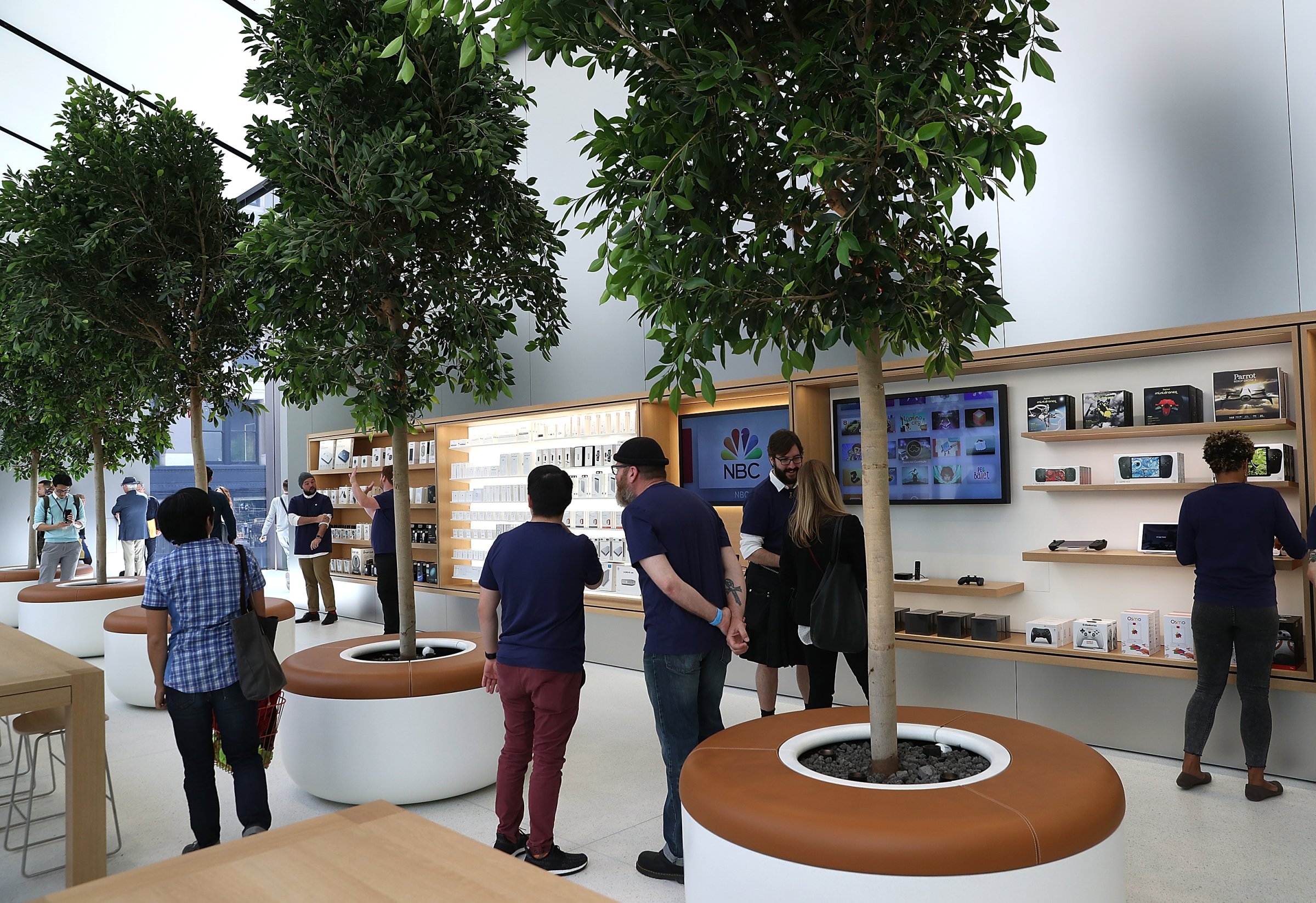
Apple’s new flagship store, in the center of San Francisco, will be opening to the public on May 21 — both in the sense of doing business and quite literally.
The cavernous two-floored space is a rectangular prism made of glass and steel, filled with more straight lines than a geometry textbook. It’s perfectly in keeping with Apple’s clean, modern aesthetic. But this particular prism has something special and new: the equivalent of 42-foot tall patio doors making up its face. They slowly slide apart like portals on the starship Enterprise, beckoning the public to walk in and sit right down.
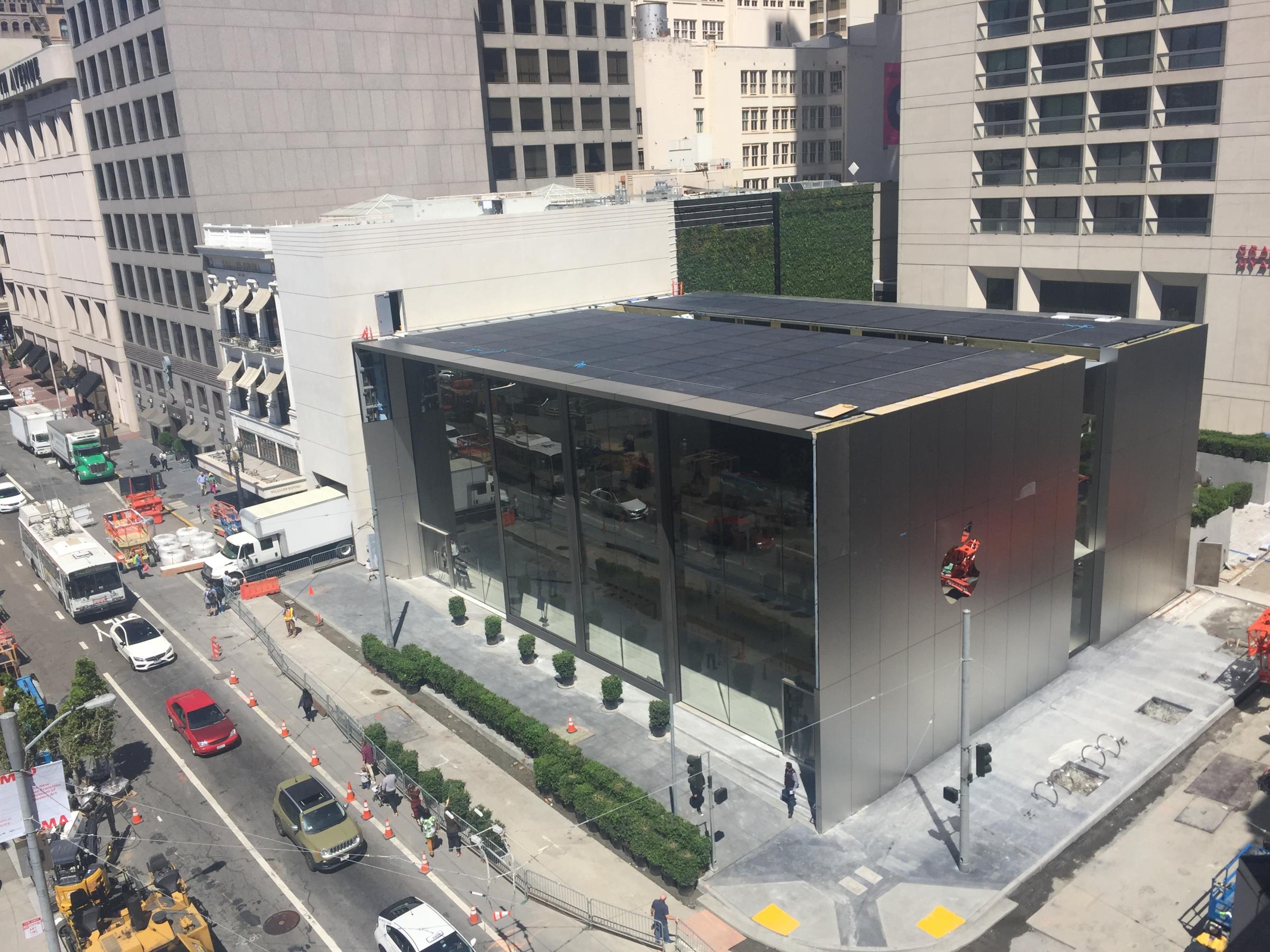
“I hope as you came in you saw the openness and the transparency,” Angela Ahrendts told reporters gathered for a preview of the world’s newest Apple Store Thursday. In 2014, Ahrendts gave up a gig as Burberry’s CEO to run Apple’s retail and online operations. It would be hard to miss her message or the double-entendre, given that those two buzzwords are king around Silicon Valley—and in broader American business and public life today.
Ahrendts gave a speech to mark the occasion, noting that it was 15 years to the day since Apple opened its first retail locations in California and Virginia. The stores are now a considerable success, with 480 shops in 18 countries and boasting the most revenue per square foot of any physical retail location.
Ahrendts said the San Francisco store would be the first to contain elements that make up the “overarching vision of the future of Apple retail.” Essentially, Apple wants people to view its stores not just as a place to spend money, but as a community center where they can come, kick back and hang out. There will be music and walkabouts and talks. Think of her vision as a twenty-first century version of the local bookstore.
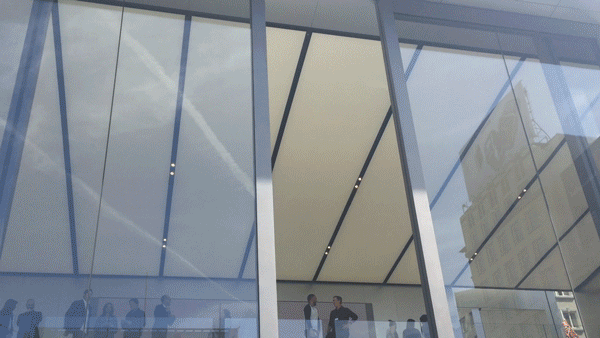
Five elements make up the future of Apple’s retail operation, Ahrendts said, calling the Union Square shop “the first, largest global flagship and the future of what you will see going forward.” Each facet is part of a grand “town square” metaphor, starting with the “avenue,” an open area of what she called “little boutiques” where people can stroll around just as they might through the surrounding stores in Union Square. Apple has created a new position, called a Creative Pro, to staff these areas, billing them as artsy spins on the Genius who won’t just tell you the specs of the latest iPhone’s camera but might explain backlighting and the rule of thirds.
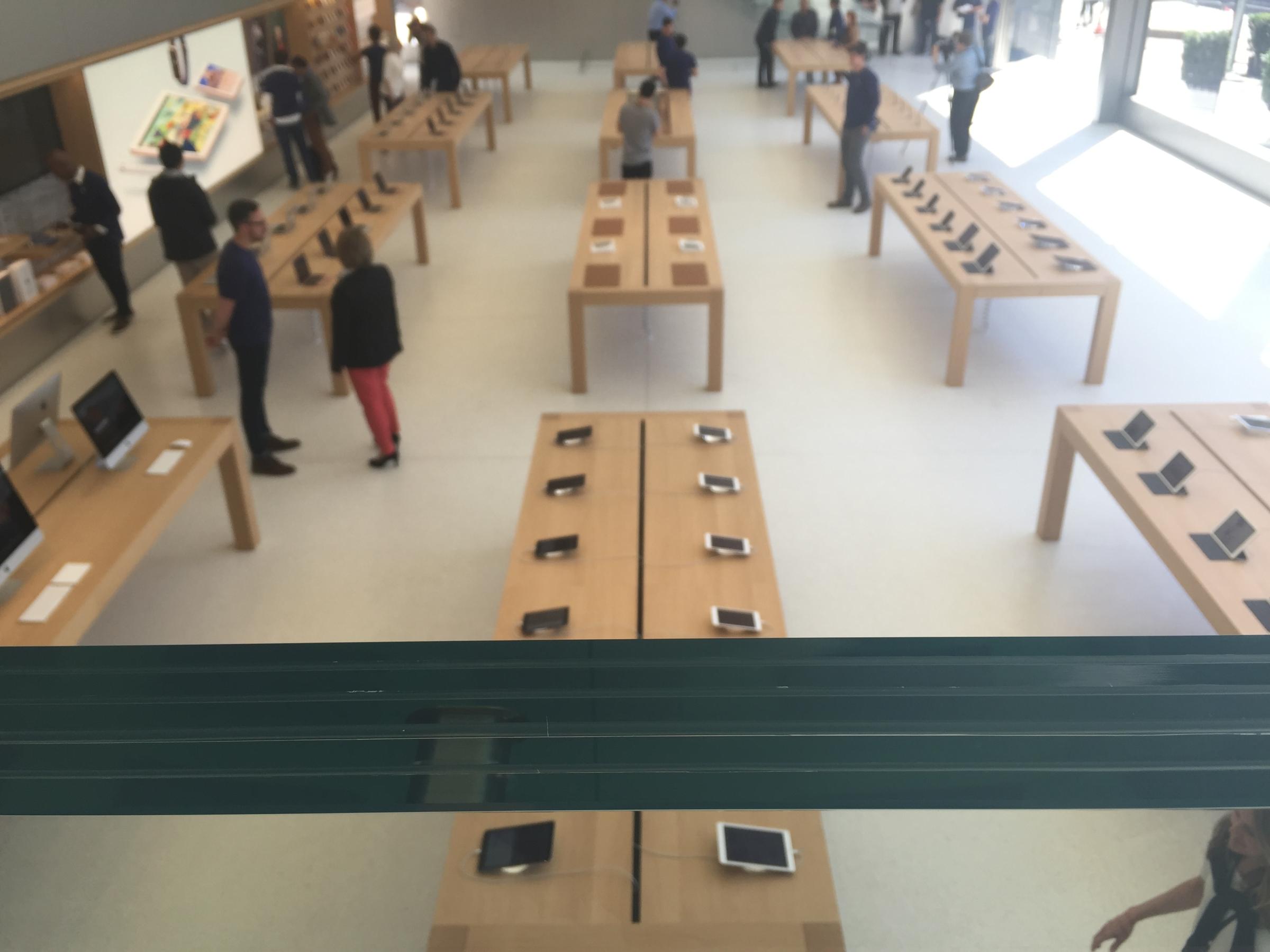
The second is the “board room,” a meeting place that Ahrendts described as a home for the thousands of aspiring entrepreneurs and startups that overfloweth in San Francisco, potentially helping Apple strengthen its ties to small businesses. And the third is Apple’s new take on the Genius Bar, those areas where customers can go get help with their hardware and software. It’s called a “Genius Grove,” all the “significant” stores will have them. And yes, these groves will be lined with actual trees—with leather seats wrapped around their bases, no less.
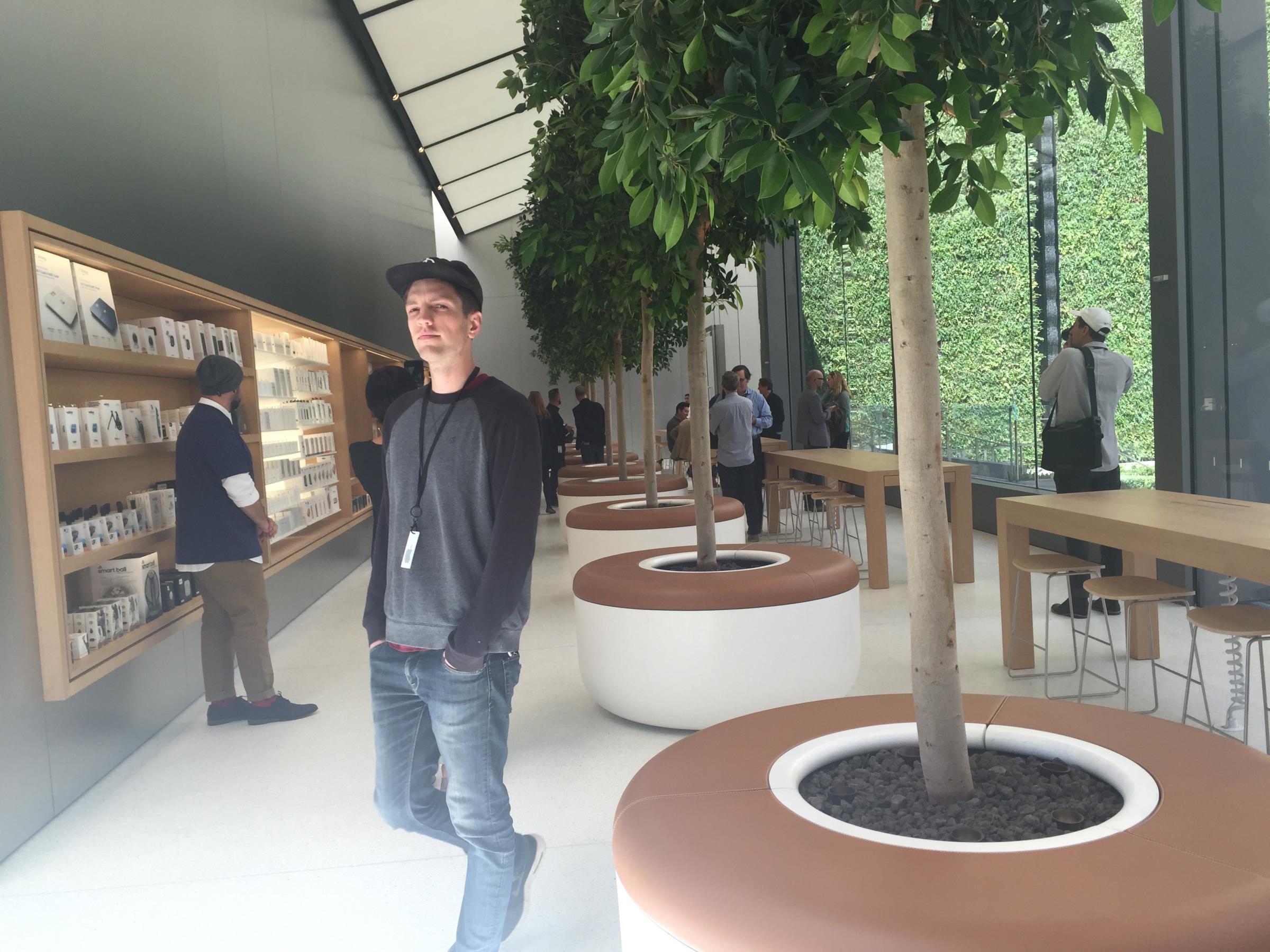
The word bar, Ahrendts believes, denotes noise and chaos. “Sometimes getting your phone repaired is like going to the dentist,” she said. But if that phone is an iPhone, getting it fixed will soon be more like going to a cafe run by a proprietor with a real passion for plants. With the bar replaced by a table plus the tree-benches, she said, seating will be quadrupled. Sit, relax, she said. Just listen to the music.
The fourth feature is what Apple is calling “the forum,” a sleek, open take on a classroom where a musician might lead a workshop on sound editing or a developer might come talk shop with other app-makers. Attendees will have the choice of sitting on wooden boxes, leather boxes or leather balls. And there won’t be hard rules about showing up to class on time, even if there is strictly whimsical seating available. “The next generation, they just want to flow, they want to come and go as they want,” Ahrendts said. “They don’t want a formal presentation.”
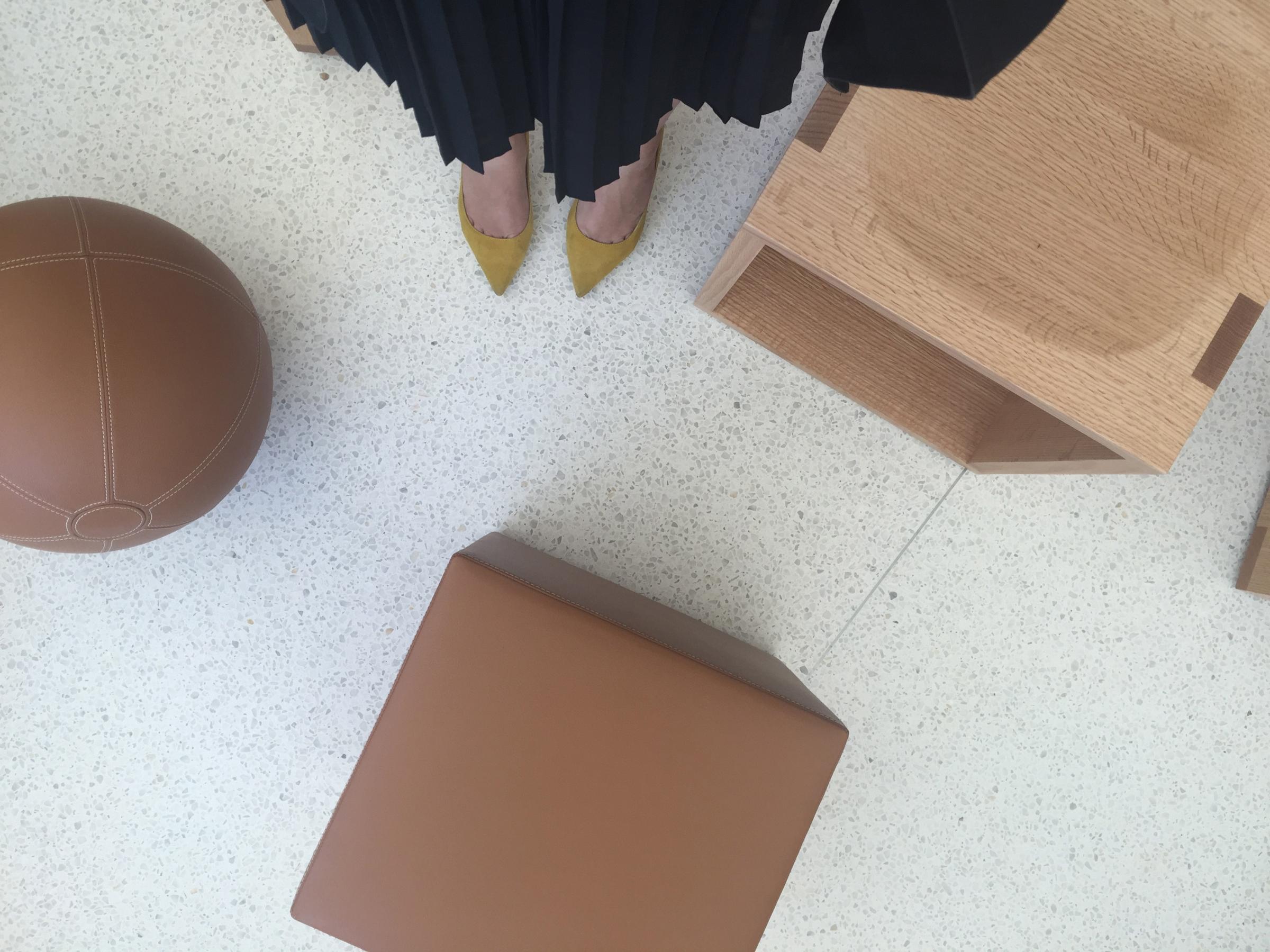
The final tweak will only be shared by the most “significant” stores: a public plaza open 24/7, with promises of free Wi-Fi and live acoustic music every week, though that appears to be some time from fruition in the City by the Bay. San Francisco’s version has a 65-foot living wall and a giant sign spelling out the word LOVE in rainbow lights, but reporters weren’t allowed outside during our sneak preview because the space isn’t finished.
In fact, dozens of construction workers were still swirling about the place immediately before the event, placing topiaries and sweeping off newly poured concrete. Attendees were “in the kitchen, if you will, before the meal’s quite ready,” Ahrendts said. If the dish comes off like Apple wants, going to an Apple Store could start to feel more like an event and less like a place for transactions. Which means that if all you want to do is replace that power cord your cat chewed up, you should stick to Apple’s most popular store: the one online.
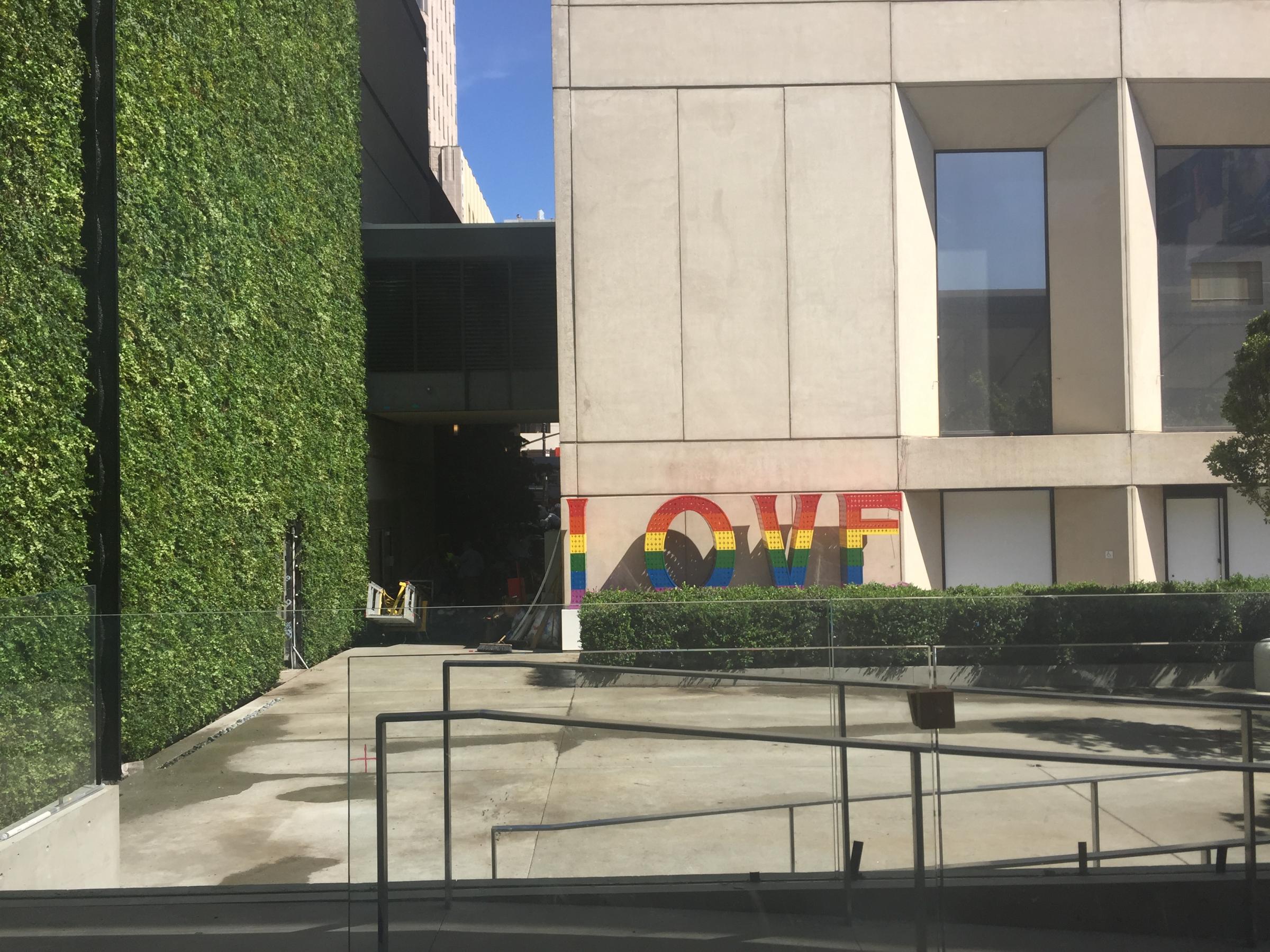
More Must-Reads from TIME
- Donald Trump Is TIME's 2024 Person of the Year
- Why We Chose Trump as Person of the Year
- Is Intermittent Fasting Good or Bad for You?
- The 100 Must-Read Books of 2024
- The 20 Best Christmas TV Episodes
- Column: If Optimism Feels Ridiculous Now, Try Hope
- The Future of Climate Action Is Trade Policy
- Merle Bombardieri Is Helping People Make the Baby Decision
Contact us at letters@time.com